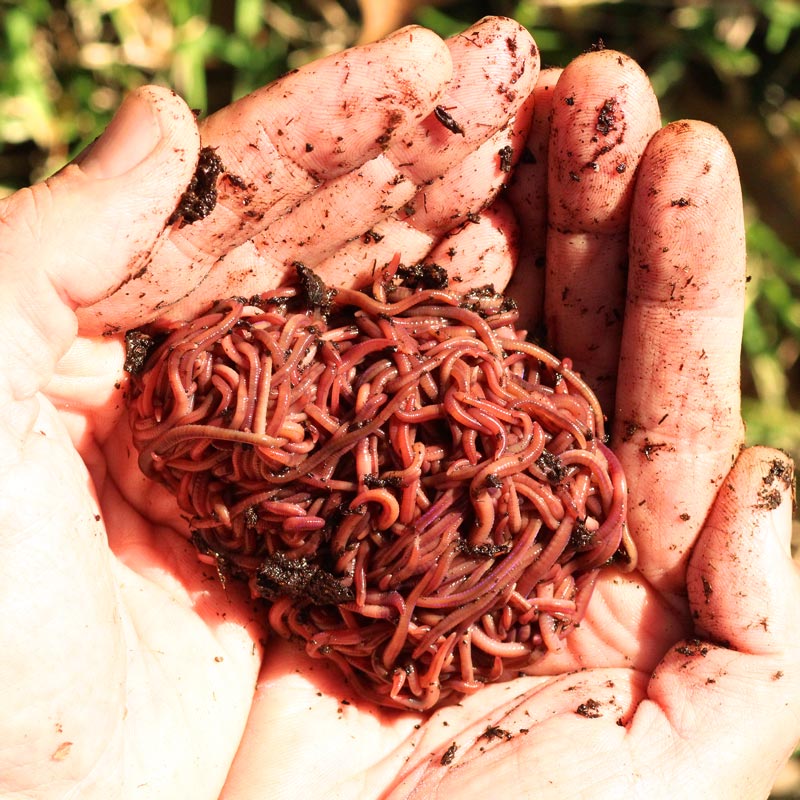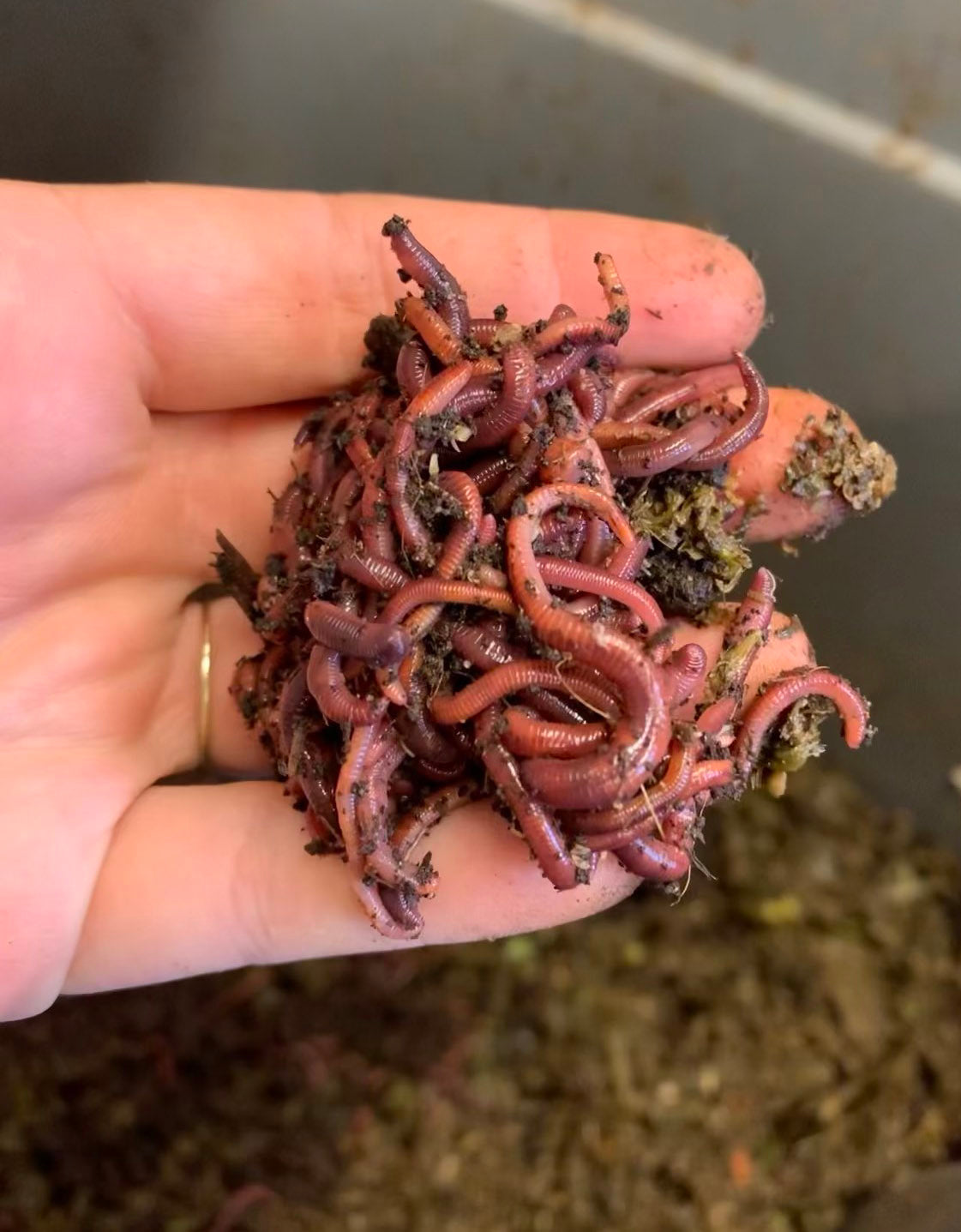Use Lake Hickory Bait for Remarkable Lawn Health and Gorgeous Greens
How Red Wigglers Can Change Your Composting Experience
The combination of red wigglers into composting techniques uses a transformative method to waste administration and soil enrichment. Understanding the certain requirements and benefits linked with maintaining a thriving worm population is critical for maximizing their capacity.
Advantages of Red Wigglers
Red wigglers, clinically referred to as Eisenia fetida, are a keystone of effective composting systems due to their impressive capacity to decompose organic matter successfully. These worms stand out in transforming kitchen area scraps, yard waste, and various other natural products right into nutrient-rich garden compost, frequently described as worm spreadings. Lake Hickory Bait. This procedure not only lowers landfill waste but likewise contributes to sustainable horticulture methods
One of the primary benefits of red wigglers is their high reproduction rate, allowing them to populate a composting environment swiftly. This fast multiplication improves disintegration rates, leading to faster garden compost manufacturing. Additionally, red wigglers thrive in a diverse series of conditions, making them versatile to various composting arrangements.

Setting Up Your Worm Container
(Red Wiggler Express)To create a reliable worm container for composting, mindful interest needs to be provided to its style and atmosphere. A suitable worm bin should be created of products that are durable yet enable needed air flow, such as plastic or timber. The size of the bin can vary, yet a volume of roughly 1 square foot per extra pound of worms is a great starting factor.
Ensure that the bin has drain openings to avoid water build-up, which can bring about anaerobic conditions damaging to the worms. Furthermore, including air flow openings will certainly help keep proper humidity degrees and oxygen flow.
Following, it is necessary to supply bed linens for the worms, which can consist of shredded paper, cardboard, or coconut coir. This bedding not only uses an environment for the worms however additionally help in dampness retention.
Position the worm container in a location that keeps a temperature variety of 55-77 ° F(13-25 ° C) to maximize worm activity. Avoid placing the bin in straight sunshine or severe temperatures. By adhering to these standards, you can produce a helpful setting for red wigglers, improving the efficiency of your composting process.
What to Feed Your Worms

(Charlotte NC Worms For Sale)Red wigglers especially delight in soft, moist foods like watermelon skins, cucumber peels, and banana peels. Nonetheless, it is vital to prevent feeding them citrus fruits, onions, and garlic, as these can be harmful to their wellness. Additionally, prepared foods, dairy items, and meat should be strictly avoided, as they can cause smells and draw in bugs.
Providing a consistent feeding routine will aid keep your worm populace prospering while boosting the overall performance of your composting efforts. By comprehending what to feed your worms, you lay the foundation for an effective and lasting composting experience.
Preserving a Healthy Environment
Creating a flourishing composting setting for red wigglers calls for focus to their habitat, as it directly affects their health and wellness and performance. The ideal habitat should keep a balanced wetness level, generally between 60-70%. Excessive moisture can cause anaerobic conditions, while not enough dampness might dry out the worms.

The bed linen product in the compost should be diverse and shredded, integrating materials like cardboard, newspaper, and coconut coir. This not only provides a comfortable atmosphere however likewise works as a food resource. Lake Hickory Bait. On a regular basis looking for smells or indicators of bugs can assist recognize potential problems before they escalate
Lastly, maintaining a balanced pH level, preferably between 6 and 7, makes certain a favorable environment for red wigglers, cultivating their ability to process natural matter properly. By attending to these aspects, you can develop a sustainable and productive composting ecological community.
Harvesting and Utilizing Compost
Collecting compost from a worm bin is a fulfilling process that transforms natural waste right into nutrient-rich material for gardens and plants. This can be done utilizing methods such as the "light" method, where worms are attracted to light and can be scooped away from the top layers, or by moving the garden compost to one side of the container and adding fresh bed linens to the other side, urging the worms to migrate.
Once the worms are eliminated, the remaining compost can be filtered to eliminate any type of larger particles or undecomposed product. The end product must have a dark, crumbly appearance and a positive earthy scent, showing that it awaits use. This rich garden compost can be used directly to yard beds, blended right into potting soil, or utilized as a top dressing for potted plants. By integrating vermicompost right into your useful source horticulture practices, you not only boost soil fertility yet likewise advertise healthy plant growth and sustainable gardening methods.
Final Thought
Including red wigglers right into composting practices considerably improves the decay process and adds to the manufacturing of nutrient-rich vermicompost. The resulting worm castings boost dirt structure, fertility, and microbial task, ultimately advertising much healthier plant growth.